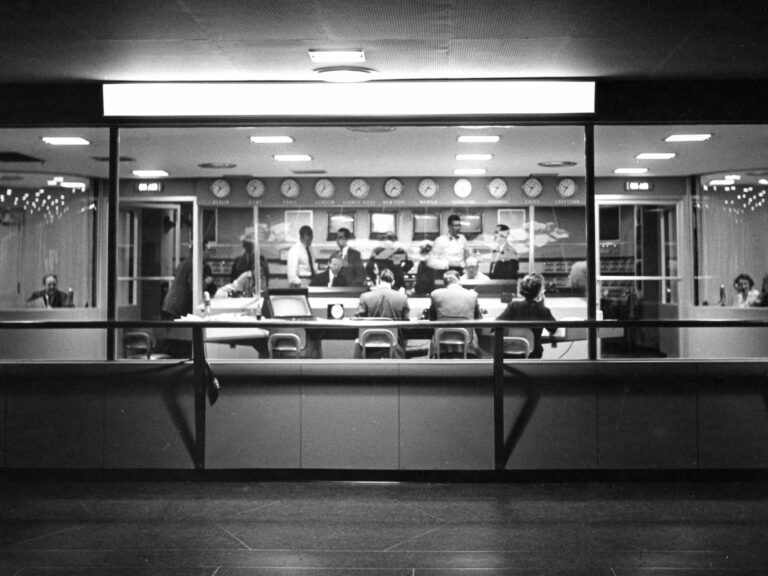What Happened to Union Bank? The Story of Financial Fates
The past, present, and future of Union Bank are integral in understanding its financial trajectory. As we proceed, you’ll gain insights on the dynamic chapters of its history and the impacts on its financial fates.
Let’s delve deeper into key events that have shaped Union Bank’s financial path:
- Historical Overview of Union Bank: This encapsulates the growth and evolution of the bank over the years.
- Recent Acquisition Developments: Acquisition deals often bring about strategic shifts and new opportunities.
- Alterations in Personal Accounts: Any changes here might directly affect your banking experience.
- Changes in Corporate Accounts: Such modifications could potentially reshape business banking.
- Transition to the U.S. Bank App: The digital transition has affected every aspect of banking services.
- Implications for Shareholders: This can reflect how business decisions could affect share value.
These elements collectively give us a clear picture of Union Bank’s financial fates and what could lie ahead on its journey.
A Deeper Look at Union Bank’s Financial Story
The bank’s historical timeline is filled with various milestones that have altered its course.
Its recent acquisitions signal an era of supposed growth and expansion.
The changes in personal and corporate accounts have presented fresh opportunities and challenges for customers.
It’s essential to stay informed about these changes to navigate your financial decisions effectively.
Contents
- History of Union Bank
- Union Bank Acquisition Developments
- Changes for Personal Accounts
- Changes for Business and Corporate Accounts
- Transitioning to the U.S. Bank Mobile App
- Concerns About Union Bank Debit and ATM Cards
- Effects on Current Bank Services
- Implications of Acquisition for Shareholders
- Union Bank’s Destiny
History of Union Bank

Let’s venture back to 1919, the year Union Bank was born. A time when the world was undergoing significant change.
The early 1920s saw the fledgling bank finding its feet, paving the way for financial operations in India.
Fast forward to 1936, and the bank had already weathered multiple storms, proving its resilience in face of adversity.
The year 1947 was monumental for both India and the bank. As India breathed in independence, Union Bank continued to thrive.
Moving ahead to 1965, it started to make its mark nationally. It’s no small feat for a financial institution to achieve such growth within half a century.
“Today Union Bank stands as one of the largest government-owned banks of India.”
We saw Union Bank’s operations evolve further in 1985. The institution expanded beyond traditional banking services, catering to changing customer needs.
Then came the digital age in 1993. Union Bank embraced emerging technologies, making banking more accessible.
The year 2003 marked another turning point with a renewed focus on global operations. Underpinning this was a resolute commitment to financial inclusion.
In 2012, it enhanced its digital services, staying attuned with the evolving banking landscape.
For additional insights into their history, you can refer here.
And now we arrive at present. Ever-evolving, Union Bank continues to roll with the times while holding onto its strong heritage.
Union Bank Acquisition Developments

If you’re observing U.S. Bancorp’s recent activities, you might have noticed a significant acquisition. They completed the purchase of MUFG Union Bank from Mitsubishi UFJ Financial Group on December 1, 2022.
This deal consisted of U.S. Bancorp acquiring MUFG Union Bank’s core regional banking arm. The total cost of this transaction was $8 billion.
This purchase price incorporated $5.5 billion in cash and 44.4 million shares of U.S. Bancorp common stock.
Interestingly, MUFG retained a minor 2.9% stake in U.S. Bancorp following the completion of the deal.
Before the closing, an impressive $9.6 billion in capital was released by MUFG Union Bank through dividends or share repurchases.
As part of the agreement, all employees of MUFG Union Bank were retained by U.S. Bancorp. This inclusion ensures continuity and expertise within the organization.
The businesses acquired exclude Global Corporate & Investment Banking and related Global Markets operations.
Rather, they include Retail and Commercial Banking sectors which had assets totaling $105.5 billion and equity amounting to $7.1 billion.
The transaction was valued at 13.5 times FY2020 earnings based on MUFG Union Bank’s net income of $593 million.
Every acquisition needs regulatory approval, and this one was no different. Authorities such as the Federal Reserve Board, the Office of the Comptroller of the Currency, the Federal Deposit Insurance Corporation, and even Japan’s Financial Services Agency gave their nods.
By October 14, 2022, all necessary approvals were secured. More on this transaction can be found here.
Changes for Personal Accounts

Union Bank is enhancing its protocols to secure your personal data, focusing on access restriction. NerdWallet’s approach lends inspiration to this.
Only employees who need to access your data for their job duties will have permission to do so.
- Registered Details: This pertains to the contact details used for registration – your name, mailing address, email, and phone number.
- Verification Data: This contains your date of birth and government-issued identification for verification purposes.
- Vehicular Info: Specific information about your registered vehicles may be stored.
- Monetary Records: Your financial standing could be assessed by considering your income, expenses, assets, and liabilities.
The bank is committed to training employees about the proper handling and maintenance of this personal data.
Your demographic data would be about age, gender and education level. It would also extend to relevant financial products or services requested by you.
If you’re communicating with the bank through email or phone, these conversations can be stored too. But rest assured that stringent security measures are in place to safeguard this data.
The device you use for communication may also be logged. However, this is only done if you grant necessary permissions.
Your payment info will also be securely encrypted. The bank uses a 128-bit encryption to protect your financial data, providing a safe banking experience for you.
Union Bank’s commitment is towards ensuring a seamless banking experience while respecting your privacy.
Changes for Business and Corporate Accounts

As a business or corporate account holder, you may find yourself in the midst of dual-class struggles. Your long-standing status may be up for a change as companies and shareholders disagree over board powers. This is becoming prevalent with various corporations.
The rulings in favor of renowned CEOs, like Elon Musk and Akio Toyoda, are contributing to these transformations. They have won support from a significant majority, thanks to their companies’ robust financial performance.
- CEO Remunerations: This has been a contentious issue, with Prof Winfried Ruigrok from St Gallen University examining it closely.
- Shareholder Support: Whether it’s Elon Musk receiving his shares or Akio Toyoda’s success at annual meetings, shareholder backing plays a crucial role in shaping the company’s strategies.
- Court Rulings: Several court rulings that endorse these changes can potentially impact your business account’s future dealings.
Public benefit corporations are emerging as an effective way to mitigate risks. They are taking center stage in ensuring that a company does not lose its way as it grows or is taken over.
The attention towards greenhouse gas emissions and responsible business targets is on the rise. Companies failing to execute plans designed to lift their share price may face objections to pay packages or re-elections.
With this unprecedented shift, you need to stay informed about these changes. Understanding the ins and outs of this dynamic landscape will aid you in making informed decisions for your corporate account.
Transitioning to the U.S. Bank Mobile App

Your company’s payment operations can be significantly improved by transitioning to digital banking via the U.S. Bank mobile app.
This change is a response to the long-term impacts of COVID-19, encouraging safer and more efficient transactions.
The management of your money becomes easier, and transactions are securely executed with minimal hassle.
A well-planned cash flow system ensures smooth operations, but it requires thoughtful planning and execution.
The fear of faster payments leading to increased fraud should not deter you, as U.S. Bank provides measures to maintain secure transactions.
| Tips for Smooth Transition |
|---|
| Use Guidance Provided by U.S. Bank |
| Manage Money Efficiently and Securely |
| Implement a Well-Planned Cash Flow System |
| Maintain Secure Transactions to Prevent Fraud |
| Embrace Digital Transformation for Efficiency |
The table above offers valuable tips for smoothly transitioning to digital banking with the U.S. Bank Mobile App.
Leveraging U.S. Bank’s expertise in digital banking technologies can guide your business through this transformation.
Automating payment processes brings accuracy and efficiency, leaving you free to focus on other important aspects of your business.
Concerns About Union Bank Debit and ATM Cards

Your Union Bank ATM or debit card might be your financial lifeline. It grants you access to your funds from anywhere around the globe. However, concerns may arise.
For instance, what happens when your card gets lost or stolen? Or when there’s an unauthorized transaction on your account? Such situations can be nerve-wracking.
- Secure usage: Never share your card info. The bank will never request for it.
- Losing your card: Call customer service immediately. They will block the card.
- Fraudulent transactions: Monitor your account regularly for unfamiliar activity.
- Transaction issues: Contact the bank for any failed transactions or disputes.
You can also use online platforms for financial tasks. These services have evolved to match the flexibility of physical cards.
Apply for a Nigerian passport or visa online. It’s secure and uncomplicated. The embassy makes the final decision, but the process is assisted and simplified.
Regardless of whether you’re applying for a passport or a visa, you can pay comfortably using your Union Bank Card.
Paying with POS, Phast Pass, Visa, Mastercard or Bank debit/credit card are all acceptable forms of payment for these services. Fees are not refundable once paid.
Effects on Current Bank Services

What’s the impact of digital banking on traditional services?
Digital banking advancements echo a decrease in traditional banking. As tech-savvy tools and innovations rise, more than 2,500 bank branches closed in 2023.
This spiral signifies a shift towards effortless, remote access to your accounts and personal finances.
What are the trends in digital banking?
Innovations like AI-powered budgeting tools and new purchasing platforms transform the landscape. These marvels offer convenience and simplicity, revolutionizing your financial management experience.
But despite all these advancements, physical branches still hold value for many customers. For instance, think of face-to-face meetings with a personal banker.
How does digital banking compare with traditional systems?
A significant proportion (71%) prefer managing their accounts via an app or computer. However, 38% deem physical banks as essential. This data shows the balancing act between physical and digital mediums.
Security concerns about online banking result in 30% of customers boycotting this option. But about 79% affirm that digital innovations make banking easily accessible.
Are there people still without bank accounts?
Yes, around 4.5% Americans aren’t part of any banking system. They neither have traditional nor online bank accounts. Such demographic reminds us of the continuous need for inclusive financial solutions.
Note, even though they’re unbanked, some may seek alternative methods for financial transactions.

You might wonder about the meaning behind “mergers and acquisitions” (M&A). It’s a phrase indicating the consolidation of companies through various financial deals.
An acquisition implies one company taking over another, with the buyer becoming the new owner. On the other hand, a merger brings together two comparable companies, creating a new entity.
Mergers Versus Acquisitions
In mergers, both companies willingly give up their individual identities to form something new and hopefully more robust.
However, acquisitions can be seen differently. Picture a bigger company swallowing a smaller one: it absorbs all its assets while the smaller one ceases to exist.
Why Pursue Acquisitions?
Companies usually chase acquisitions for different reasons. One of these is optimizing economies of scale, or reducing costs per unit as production scales up.
Another reason is to gain access to the smaller company’s technologies. By doing so, years of capital investment and research could be bypassed.
A New Trend in Corporate Reorganization
The phrases “merger” and “acquisition” are increasingly being used interchangeably. Contemporary corporate reorganizations are often termed M&A rather than just mergers or acquisitions.
For example, America Online and Time Warner carried out the biggest merger in history during 2000. The largest acquisition took place when Vodafone Group took over Mannesmann AG in 1999.
Union Bank’s Destiny
Union Bank, once a financial titan, succumbed to a series of unfortunate events including poor management decisions and relentless financial crises. Despite its past glory, the bank’s inability to adapt to the changing financial landscape ultimately led to its downfall. The story of Union Bank serves as a stern reminder of the importance of strategic planning and adaptation in the volatile world of finance.










